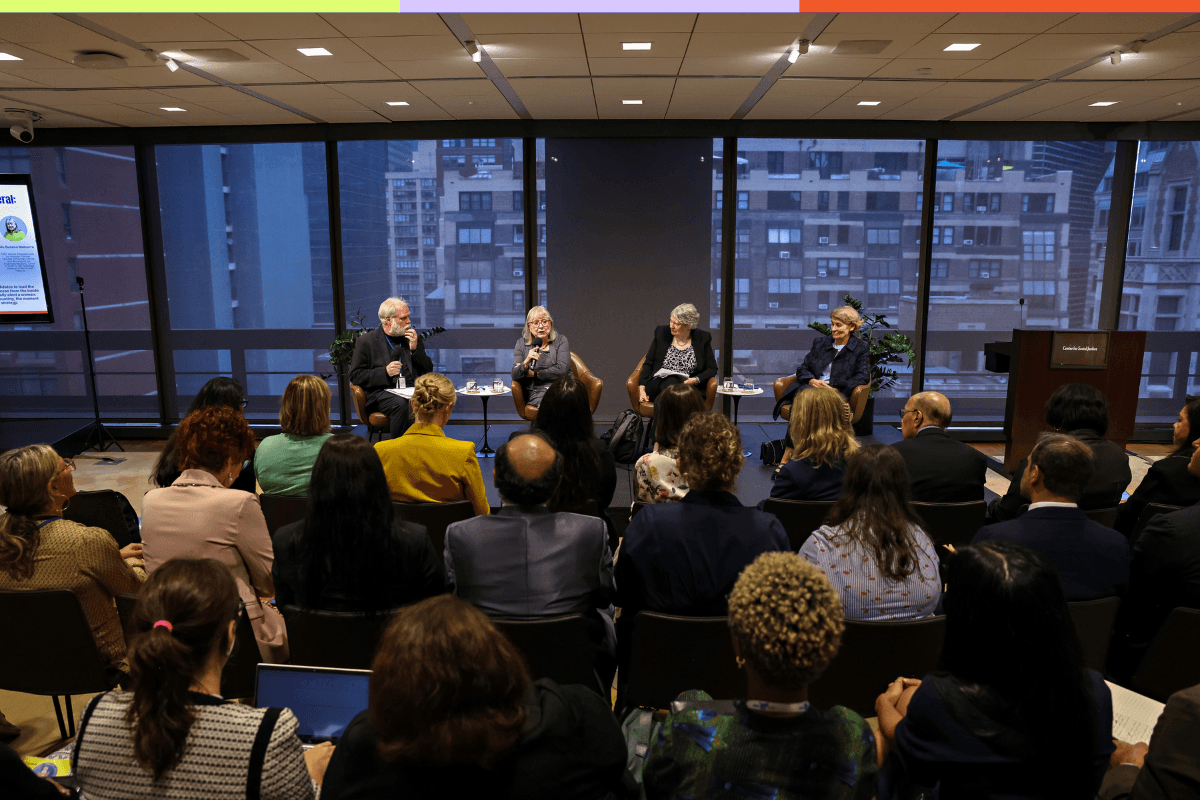Former Candidates to Lead the UN Gathered at UNGA80 to Ask What It Will Take to Finally Elect a Woman SG

Share
Today, in the context of the 80th Session of the United Nations General Assembly, GWL Voices hosted a High-Level event titled: “What Will It Take to Elect a Madam Secretary General?”
This timely discussion comes as the world commemorates both the 30th anniversary of the Beijing Declaration and Platform for Action and the 80th anniversary of the UN itself—an institution that, after eight decades and nine male leaders, has yet to appoint a woman Secretary-General.
The event brought together three leaders, one uncommon experience: having stood as candidates to lead the United Nations in 2016. They’ve seen the Secretary-General selection process from the inside—and they’re coming together with GWL Voices to ask what it will take to finally elect a woman. With a new election approaching in 2026 and global pressure mounting, the moment demands more than reflection. It calls for insight and strategy.
Panelists included Ms. Irina Bokova, Former Director-General of UNESCO, and GWL Voices co- founder, Ms. Helen Clark, Former Prime Minister of New Zealand, former UNDP Administrator, and GWL Voices co- founder, Ms. Susana Malcorra, Former UN Chef de Cabinet, and GWL Voices co- founder and President.
Opening Remarks were made by Ms. María Fernanda Espinosa, former President of the UN General Assembly, and GWL Voices Executive Director; and Mr. Richard Gowan, Crisis Group Director, UN and Multilateral Diplomacy who moderated the session.
“The question of having a woman as Secretary-General—people often ask me why. And the answer is simple: why not? As simple as that—why not?” said Ms. Malcorra. Ms. Clark emphasized that, “Running for UN Secretary-General is not a democratic process because only the P5 decides, which also raises the question of why the SG is not elected by the General Assembly.” Ms. Bokova added, “It is an important point to say that by electing a woman, the trust and legitimacy of the United Nations will definitely be strengthened.”
Panelists emphasized that reforms in 2016 introduced new elements of transparency. However, there is no guarantee these improvements will be maintained in 2026, even though they should be our starting point. Also called for Member States to take the lead by nominating women, voicing support for a woman SG, and demanding a transparent, inclusive process that reflects the values the UN stands for.
They also called for action keeping the spotlight on the process, asking the governments where they stand.
The panel concluded that a woman SG would not only make history—it would reflect the world we live in.